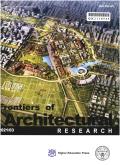采用Delphi-Kano模型和熵权TOPSIS方法研究不同年龄群体对老年友好型住房环境的偏好及其影响因素
IF 3.6
1区 艺术学
0 ARCHITECTURE
引用次数: 0
摘要
随着中国人口老龄化的加剧,居家养老成为养老的主要方式。然而,目前的居住环境往往不能满足老年人的需求。老年人住房研究缺乏不同人口群体的比较研究。本研究采用德尔菲法来确定老年友好型住房(AFH)的改进,并开发了一个卡诺模型问卷来分析不同年龄组老年人的偏好。此外,它还评估了生活安排和健康状况如何影响这些偏好。结果显示,60-74岁的人优先考虑与外部环境的视觉联系,并监测家外环境,而75岁及以上的人更关注浴室安全和室内流动性。60-74岁和孩子一起生活的老年人,以及75岁及以上和照顾者一起生活或住在养老院的老年人,通常对大多数设计策略表现出较少的关注。相反,患有关节炎、视觉障碍或听力障碍的老年人倾向于更喜欢设计改进。在制定和推行有关安老院舍的政策时,应考虑到长者不同的年龄和生活安排,设定适当的优先次序,从而有助优化资源,提高长者的满意度和生活质素。本文章由计算机程序翻译,如有差异,请以英文原文为准。
Investigating preferences and influencing factors of age-friendly housing environments across different age groups using the Delphi-Kano model and entropy weight TOPSIS method
China's escalating aging population has made home-based care the primary means of elderly support. However, current residential environments frequently fail to meet seniors' needs. Research on elderly housing lacks comparative studies across different demographic groups. This study employs the Delphi method to identify improvements for Age-Friendly Housing (AFH) and develops a Kano model questionnaire to analyze preferences among various age groups of elderly individuals. Additionally, it evaluates how living arrangements and health conditions impact these preferences. Results show that individuals aged 60–74 prioritize visual connections with the external environment and monitoring the surroundings outside their homes, while those aged 75 and above focus more on bathroom safety and indoor mobility. Seniors aged 60–74 living with children, and those aged 75 and above living with caregivers or in nursing homes, generally exhibit less concern for most design strategies. Conversely, seniors with arthritis, visual impairments, or hearing disabilities tend to favor design improvements more. Policymaking and implementation related to AFH should account for elderly individuals' diverse ages and living arrangements to set appropriate priorities, thereby aiding in optimizing resources and enhancing residents' satisfaction and quality of life.
求助全文
通过发布文献求助,成功后即可免费获取论文全文。
去求助
来源期刊

Frontiers of Architectural Research
ARCHITECTURE-
CiteScore
6.20
自引率
2.90%
发文量
430
审稿时长
30 weeks
期刊介绍:
Frontiers of Architectural Research is an international journal that publishes original research papers, review articles, and case studies to promote rapid communication and exchange among scholars, architects, and engineers. This journal introduces and reviews significant and pioneering achievements in the field of architecture research. Subject areas include the primary branches of architecture, such as architectural design and theory, architectural science and technology, urban planning, landscaping architecture, existing building renovation, and architectural heritage conservation. The journal encourages studies based on a rigorous scientific approach and state-of-the-art technology. All published papers reflect original research works and basic theories, models, computing, and design in architecture. High-quality papers addressing the social aspects of architecture are also welcome. This journal is strictly peer-reviewed and accepts only original manuscripts submitted in English.
 求助内容:
求助内容: 应助结果提醒方式:
应助结果提醒方式:


